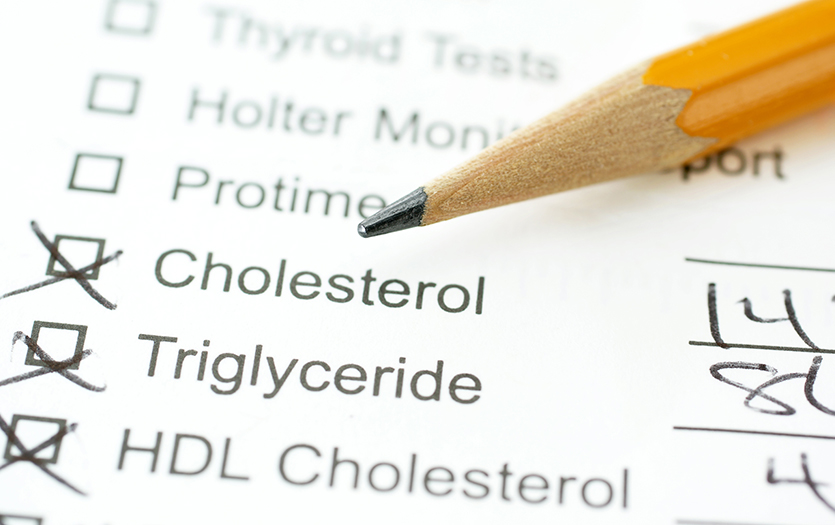
Most of us know that we need to monitor our cholesterol for good heart health, but did you know that it’s also important to have your triglyceride level checked, too? Triglycerides are another type of lipid (or fat) in your blood and if their levels get too high you can be at risk for coronary artery disease or acute pancreatitis.
What are triglycerides?
Triglycerides are a type of fat in your blood that your body uses for energy. They come from foods we eat. Butter, for example, has a lot of triglycerides. Extra calories, alcohol and sugar in your body also turn into triglycerides and your body will save them in fat cells for later when you might need them. Your body needs triglycerides, but high levels are linked to a higher risk of heart and vascular disease.
What are symptoms of high triglycerides?
High triglycerides usually don't cause symptoms, which is why it’s important to get regular lipid blood tests. Some high triglyceride conditions are genetic, and these may cause fatty bumps under the skin.
Read our post: Check your lipid profile to track your cholesterol.
What causes high triglycerides?
High triglycerides rarely occur on their own and are often linked with other conditions. High triglyceride levels can be caused by diet, lifestyle, genetics, medical conditions, medications or a combination of all of these. Eating a lot of carbohydrates, drinking a lot of alcohol or eating and drinking too much added sugar can contribute to high triglycerides. Your risk is also higher if you are overweight or not active. Sometimes high triglycerides run in families. Other health conditions can also lead to high triglycerides including hypothyroidism and kidney disease.
Certain medications may raise triglyceride levels, including:
- Antipsychotics
- Beta-blockers
- Birth control pills
- Diuretics
- Steroids
- Tamoxifen
How are high triglycerides treated?
A healthy diet and lifestyle can help lower triglyceride levels and also reduce your risk of coronary artery disease and pancreatitis. Sometimes medications are prescribed, as well.
Here are some lifestyle changes you can make to help lower your triglycerides:
- Lose weight and maintain a healthy weight. Triglycerides are stored as fat in your tissues and muscles.
- Limit foods and drinks that have a lot of sugar. These include sugar-sweetened desserts, soda pop and fruit juice.
- Limit saturated fats. These are found in animal-based foods like meat, butter, milk and cheese. They are also found in coconut oil, palm oil and cocoa butter.
- Choose a heart-healthy eating plan. Eat a diet that's rich in vegetables, whole grains, fish, lean meats and low-fat or nonfat dairy foods. Oily fish may help lower levels including salmon, mackerel, lake trout, herring and sardines.
- Limit or avoid alcohol. Alcohol has a strong effect on triglycerides. Limit alcohol to two drinks a day for men and one drink a day for women.
- Be active on most days of the week. Try to do moderate activity at least 2½ hours a week or vigorous activity at least 1¼ hours a week. Before you start to be more active, check with your doctor to be sure it's safe.
- If you have diabetes, keep your blood sugar in your target range.
- Don't smoke. If you need help quitting, talk to your doctor about stop-smoking programs and medicines. These can increase your chances of quitting for good.
- Take your medicines exactly as prescribed. Call your doctor if you think you are having a problem with your medicine.
Your doctor will check for and treat other health problems that might be causing your high triglycerides. These may include hypothyroidism or kidney disease. Your doctor may adjust or stop any medicines that might raise your level.
If you need help scheduling an appointment or establishing care with a provider, our Access Center can help. Call any time, at 877-PPG-TODAY or 877-774-8632 for assistance.
If you’re looking for trusted products to help manage your heart health, browse the curated collection of Parkview-approved items here.
Copyrighted material adapted with permission from Healthwise, Incorporated. This information does not replace the advice of a doctor.




